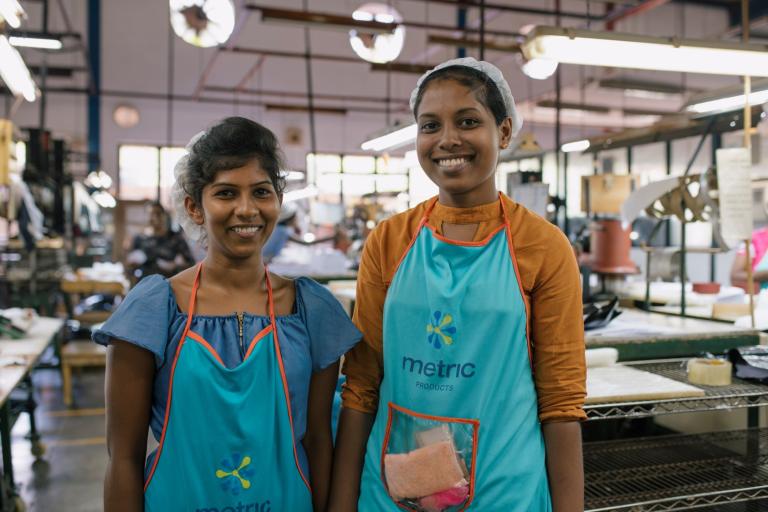
The UN helped develop a COVID-19 Immunisation Tracker that enables data analysis and visualisation at all levels, together with a digital Smart Vaccination Certificate, while a procurement of online temperature monitoring systems for the central cold stores and 27 regional stores was also facilitated.
In response to school closures, UNICEF leveraged digital solutions to reduce learning losses by formulating a home-based learning programme. It also provided financial support to produce digital and printed materials, reaching some 835,000 students. The ParentText initiative provided parents with critical health and safety information during the pandemic. UNFPA supported access to information and digital training in safe shelters for survivors of Gender-Based Violence (see Health page 8), while ILO helped 1,250 micro, small, and medium enterprises impacted by COVID-19 access to the e- commerce sector through digitised company profiles.
Empowering young people through inclusive and innovative online platforms remained a priority for the UN, with UNDP helping over 1,500 young people to improve media literacy skills. U-Report, a mobile youth empowerment platform, gathered insights from 13,000 young people to improve citizen engagement, inform leaders, and foster positive change. It also captured feedback on COVID-19 vaccines, poverty, and return to school, helping relevant authorities to address these concerns. UNV supported the development of a Volunteer Management System, and a first-of-its-kind digital ecosystem analysis was completed by UN Women to support future interventions on preventing violent extremism online.
The UN, through UNDP, continued to deliver technical expertise to strengthen digital governance, develop digital mechanisms, and help mainstream innovative approaches where relevant. Initiatives included support for the Department of Motor Traffic, support to a reactivated Chief Digital Information Officer network, and the facilitation of a Digital Maturity Assessment.
UNDP helped develop a one-stop web application for the Tourism Development Authority, supported the Parliament with digital solutions, funded the mapping of 274 e-governance systems, developed website templates for local government authorities, and successfully completed a justice sector pilot project, resulting in 950 e-bail applications filed, 694 cases concluded, and significant contributions to law reforms using technological solutions.
Led by ITC, an automated system to issue Certificates of Origin by the Department of Commerce is in development, while also providing advisory support to incorporate “green growth and digitalisation” concepts into the Sri Lankan National Industrial Policy. This is in addition to technical inputs on the ‘Industry Diagnosis Report’ and the report on ‘Modern Industrial Policy: Considerations for Sri Lanka.’ ICT also supported the development of guides to support e-commerce, Cybersecurity, and Consumer and Data Protection processes. For its part, UNIDO helped develop a digital tracing system related to the protected geographical indication of Ceylon Cinnamon, benefitting over 6,000 farmers and technicians in 100 farms, while also facilitating access to international markets for pepper growers through a mobile application.
Further, IOM supported the operationalisation of the Border Risk Assessment Centre in 2021, providing government with access to innovative digital inter-operable systems and tools to monitor, detect, and respond to security threats related to transnational organised crime. A new vessel monitoring system also set a milestone by introducing 200 transponders, facilitated by training programmes.

